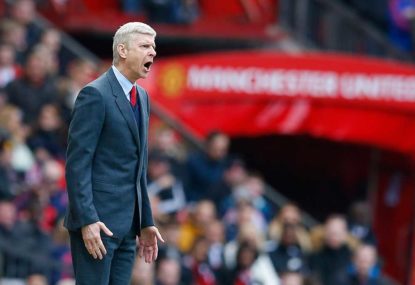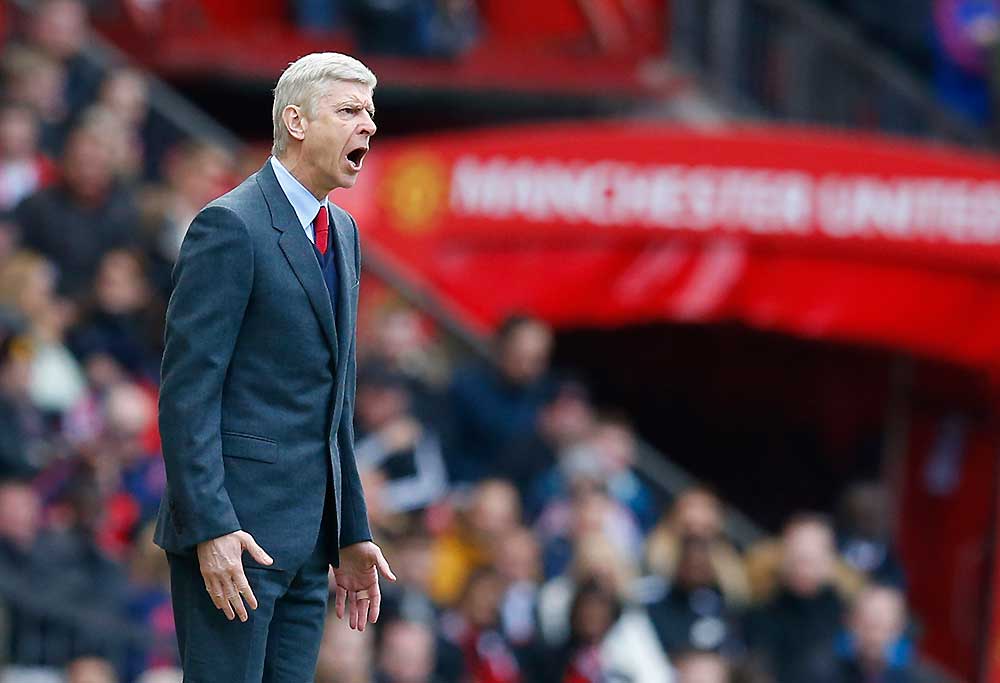'A great night': Gunners shoot Kai high at top of standings after obliterating Chelsea for biggest win in 94 years
Kai Havertz has scored twice against his former team and Ben White also got a brace as Arsenal brushed aside a dismal Chelsea side…

To many, football is everything. Our creed. Our passion. Our way of living. We define ourselves by the club we support, and we’ll be there during the good, the bad, and the downright infuriating.
Fans are the reason that stadiums the world over are sold out. Fans are the reason that the Premier League receives billions per year in worldwide television revenue. Fans are the reason that players like Neymar Jr can turn Tuesday night street football in suburban São Paulo into moving to Europe and playing for the world’s most prestigious clubs in the UEFA Champions League – and get paid well for it.
However, fans are seldom given the respect they deserve. Sure, football clubs have family days and they upload fan appreciation posts on social media at the end of a season, but these gestures often seem like an unwilling obligation to connect with paying customers (and receive repeat business) as opposed to a genuine appreciation for club supporters.
[latest_videos_strip category=“football” name=“Football”]
The growing disconnect between clubs, players and fans is a concerning trend, and one which was highlighted last week at an Oxford Union address by Arsenal defender Héctor Bellerín. To his credit, Bellerín discussed several important issues in football, most notably mental health and racism.
However, when he was asked about ArsenalFanTV – an independent, fan-operated social media team known for controversial opinions on Arsenal Football Club – he caused quite a stir with some of his comments.
In his speech, Bellerín questioned the legitimacy of supporters who criticise players when they play below acceptable standards, and he suggested that ArsenalFanTV happily profited from team failures. Whether or not you agree with the opinions broadcast on ArsenalFanTV, his comments showed a lack of respect to people who spend money and time following the club.
The purpose of this article is not to discuss ArsenalFanTV – it is to discuss the mentality of clubs and players, and their often unspoken derision towards supporters. The derision does not lie within the overly cheery social media posts created by public relations teams on behalf of players and clubs – it lies in press conferences. It lies in annual general meetings with supporters’ trusts, and in rare cases such as Bellerín’s, when a player shows obvious disdain towards a group of supporters without a public relations team behind them pulling the strings.
Deep down, football clubs are commercial entities operating in self-interest. They vary on the basis of wealth, assets and fan-base, but they all have one thing in common: they want to operate internally as much as possible. Which is a nice way of saying that they’d rather supporters gave them thousands of dollars per year and in return let them do whatever they wanted with as minimal external disruption as possible.
Club stadiums, training grounds and head offices are as closed off from the public as possible, and only a select few have access to the inner sanctum of a club. The problem with wanting fans to be ignorant to club performances is simple: fans are emotionally invested.
Which means that rational opinions (especially after a 5-1 defeat to Bayern Munich in the UEFA Champions League) aren’t going to always be possible. Supporters will be there during the good, the bad, and the downright infuriating, and opinions generally reflect the performance of the team.

(AP Photo/Jon Super)
The issue that clubs and players are facing is that the rise of social media has given fans a platform to have their say, and their influence is growing. Information is disseminated instantaneously and the opinions of regular fans are being viewed by millions of people.
Social media channels such as ArsenalFanTV are beginning to wield substantial influence in the wider footballing world. There has been discussion that ArsenalFanTV had an impact on Arsenal’s newfound spending practices in the transfer market.
But more than that, regular fans are now having the ability to hold their club accountable to prescribed performance benchmarks – which has long been the domain of shareholders and to a smaller degree, the football media.
Bellerín’s remarks highlight the disconnect between clubs, players and fans, and the dichotomous nature of opinion, criticism and feedback. But more than that, his remarks highlight that negative opinions from fans are brushed aside as irrelevant and that all that matters is the safe and secure inner sanctum of a football club, which in an ideal world would be able to quash dissent and operate without any external negativity whatsoever.
However, we can see that the rise of social media has given a voice to the voiceless, and even though players like Héctor Bellerín will likely continue to snub their nose at the peasant commoners beneath them, maybe other players and clubs will begin to understand that fans are passionate and emotional about the club they love – and that they don’t travel to Belarus in the middle of winter if they’re only there to criticise.